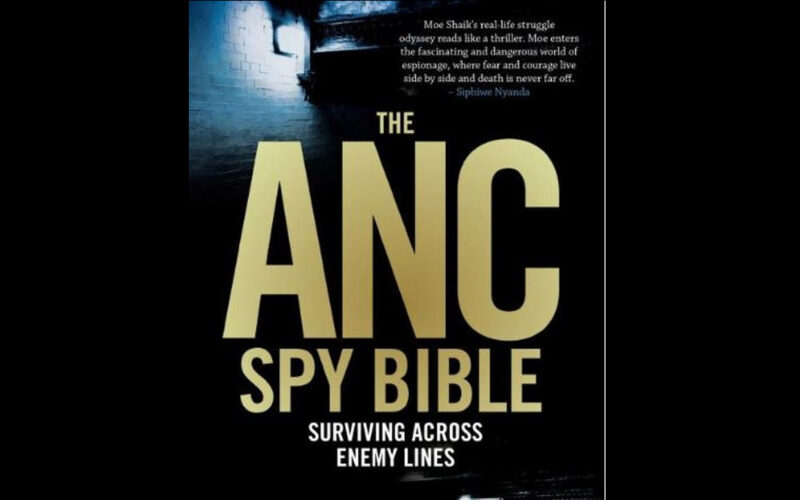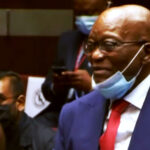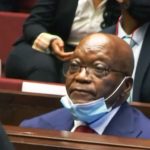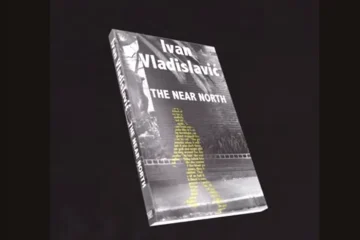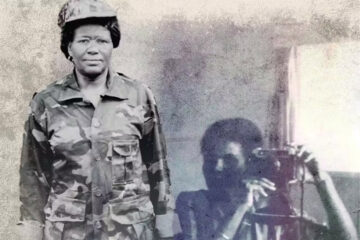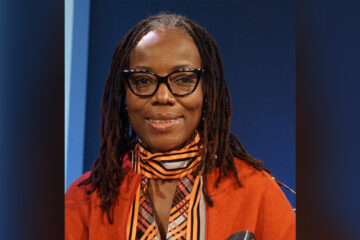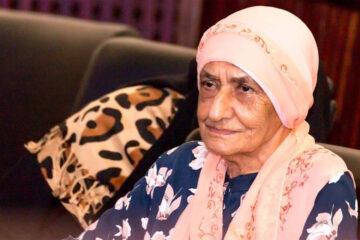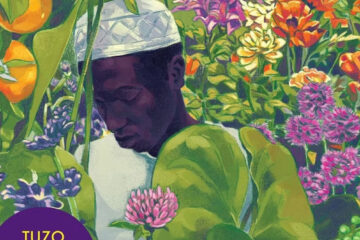JOVIAL RANTAO
It’s very rare that an intelligence operative – past or present – unmasks themselves and unveils the going-ons in the dark, cloak and dagger lives of spies.
Veteran intelligence operative and political activist Mo Shaik has done this and did it with insight and grace. Shaik’s memoir – The ANC Spy Bible – reads like a true spy thriller, full of intrigue, espionage and the dangers associated with the underground life in intelligence. It is rich in detail about his individual involvement in the ANC intelligence structures and their role in the struggle against apartheid.
The book traces the making of Shaik who went from being an ordinary young man – with a curiosity for detail – growing on the streets of Durban, to becoming one of the most respected and feared intelligence operatives. His role in helping to bring down apartheid, setting the foundation for a new democratic order is traced. So too is the impact of his underground life on himself and his family.
He strips his emotional cover and bares everything that he went through, the indescribable pain and the humiliation he endured at the hands of the apartheid security police. This chilling and important read is a reminder of the sacrifices that ordinary South Africans in the struggle for liberation. And that the very freedom we enjoy today, was not free.
Shaik’s book has some interesting personal insights, which includes the first time he met then ANC president Oliver Tambo, then Nelson Mandela and Jacob Zuma.
He reveals, for the first time, his own uncomplimentary thoughts about how he believes the ANC was factionalised under the leadership of former president Thabo Mbeki. And how the work of intelligence agencies, designed to serve the country and its citizens, was made to serve an individual in the ex-president Jacb Zuma.
There are instances, where Shaik does not hold back. For instance, he reveals his scant respect for Dr Siyabonga Cwele, the then State Security Minister “who became the bane of our existence”. His intense dislike for Cwele is found is some of the words he used in the memoir to describe his interaction with the minister. He reveals for the first time that Cwele spread a rumour that he (Shaik) spied for the French. However, tellingly, he does not offer an explanation, as I think he should, why he and other high ranking officers in intelligence did not confront Cwele about his wife’s involvement in illegal drugs. Mrs Cwele was jailed for drug dealing.
When he and fellow senior intelligence directors took on Cwele, he thought he had Zuma on his side but when the then president backed Cwele, he knew that it was over. Without going into details, he writes about how Zuma changed and relationships became transactional.
In the book, Shaik touches on the so-called “Mdluli Report ”, allegedly concocted by the former head of the SAPS crime intelligence with the sole aim of misleading Zuma and getting him to keep his job. The “Mdluli Report” spoke of a plan to topple Zuma. Shaik describes the report as ‘smoke and mirrors’ which was rejected by top spies in the country but accepted by Zuma and Cwele.
Writing a memoir can be cathartic. Shaik comes clean on his role in generating bad publicity for the then national director of public prosecutions, Bulelani Ngcuka, who he had wrongly labelled as an apartheid spy. He reveals, for the first time, that he has apologised to Ngcuka, his wife and the ANC. He says he acted out of anger for what Ngcuka did to Zuma, convicting him in a court of public opinion but not taking him to court. The wheel has, however, gone full circle and Zuma is now in court and has to fight a possible conviction.
In the book, Shaik spends his time on Nightingale, the apartheid officer who made him. He is the one who gave him his first intelligence treasure trove, containing names of top ANC members who worked for the enemy. Until, he received the files, he was just an activist doing underground political work, which included the secret movements of people in and out of the country. Perhaps the discipline of Shaik as a trained intelligence operative stopped him from disclosing the contents of the Nightingale files. He does not disclose the identity of the high ranking ANC officials who betrayed the struggle and spied for the apartheid government. It is not clear why he chose not to do something that could have turned his book into one of the bestsellers in the country and the world. Perhaps the details would have diverted attention for the intention of a personal memoir, which is what this book is. And perhaps real spies never spill the beans. They are trained that way and that training stays with them forever.
Perhaps one of the most painful parts of the book is his vivid description of this experience in solitary confinement and the relationship he formed with a rat. He drew a contrast of his life and that of the rat, which was free and could come and go to his cell at its pleasure. Moe also wrote about the impact that his life as an activist had on his relationship with his then girlfriend who became his wife. They grew apart and ultimately divorced.
He also writes, albeit briefly , about his more famous brother, Schabir Shaik, who was convicted of fraud and corruption and spent two years in jail. A good revelation is how Schabir r was diverted from learning how to make bombs to how to make money for the ANC. His invention, the Hawala system, creatively funded ANC activities, evading the eagle eye of the apartheid security branch.
He expresses his support for brother Schabir’s generosity to Zuma but is critical of some of the things he did. He could have dealt differently and more appropriately with his business, Shaik writes. Yet another desperate lack of detail here. Perhaps deliberate.
Good read.

